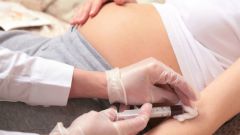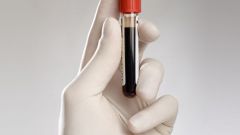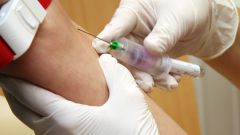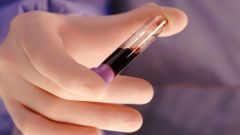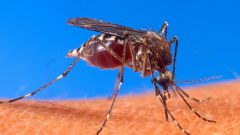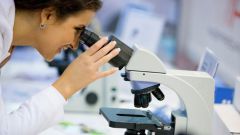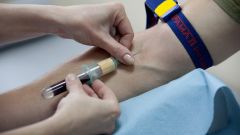Instruction
1
In the blood on day 3-5 of the menstrual cycle identify the following hormones: luteinizing hormone (or LH), which stimulates maturation of follicle, ovulation, secretion of estrogen and the formation of the corpus luteum; follicle stimulating hormone (FSH), it provides trophic (feeding) of the ovary, stimulates the development, growth and maturation of follicle; prolactin, which exerts trophic effects on the corpus luteum and converts it into functioning from nonfunctioning.
2
At 20-21 days of the menstrual cycle determine estradiol and progesterone. Extradiol secretiruetsa Mature follicles, by the adrenal glands. Progesterone is a hormone secreted by corpus luteum and placenta (during pregnancy). It prepares the endometrium of the uterus in women for the implantation of the embryo.
3
8-10 days of the menstrual cycle is the study of hormones: testosterone, 17-Oh progesterone, DHEAS sulfate and a protein that binds sex hormones (transport protein SHBG). Testosterone is a male sex hormone, the female body produced by the adrenal glands and ovaries. It is a precursor of estradiol and its excess of normal concentrations can cause miscarriage in early pregnancy. 17-Oh progesterone is precursor of sex steroid hormones produced in the adrenal glands. DHEAS sulfate are also produced by adrenal glands. Transport protein binds androgens in the serum and leaves in the active state only a small part of them.
4
In the serum it is possible to determine antisperm antibodies or antibodies to sperm. They can be formed in the blood of women and men, resulting in autoimmune reaction to sperm. The study is being conducted throughout the menstrual cycle.
5
Basic conditions of delivery of analyses on sexual hormones: all research is conducted strictly on an empty stomach; only on prescription and on days of the menstrual cycle; limited physical activity and emotional excitement; excluded medications, alcohol in any form.
6
Through the study of blood on hormones , it is possible to determine the functional state of the adrenal glands, ovaries, pituitary, thyroid, testes; to identify hereditary diseases of the fetus. The results of the blood analysis on sexual hormones can be suspected tumor, to clarify the nature of infertility, to identify menstrual irregularities, and impotence. The results of the study are used in the selection of oral contraceptives for women.
7
Blood on sexual hormones carried out in the clinical diagnostic laboratory and diagnostic center in sterile conditions, trained medical personnel, as well as using disposable sterile material and tubes for the blood draw. Conclusion the results of the study, usually ready in 24 hours.
Note
A blood test for sex hormones. In the old days, in the laboratories of medical professionals, the women's menstrual cycle was based on the results of studies on animals. The level of sex hormones is constantly changing in length of a woman's life. But in order to carry out the analysis of blood on hormones, it is sufficient to identify the following components
Useful advice
The main blood test for hormones Sex hormones Estrogens are the main female sex hormones. Estrogens provide the development of sex organs, production of gametes, psychophysiological peculiarities of sexual behavior and all phases and aspects of pregnancy. The secretion of estrogens is regulated by the gonadotropic hormones of the pituitary gland — follicle-stimulating (FSH) and luteinizing (LH) and indirectly by fallibilism and luliberin of the hypothalamus.

